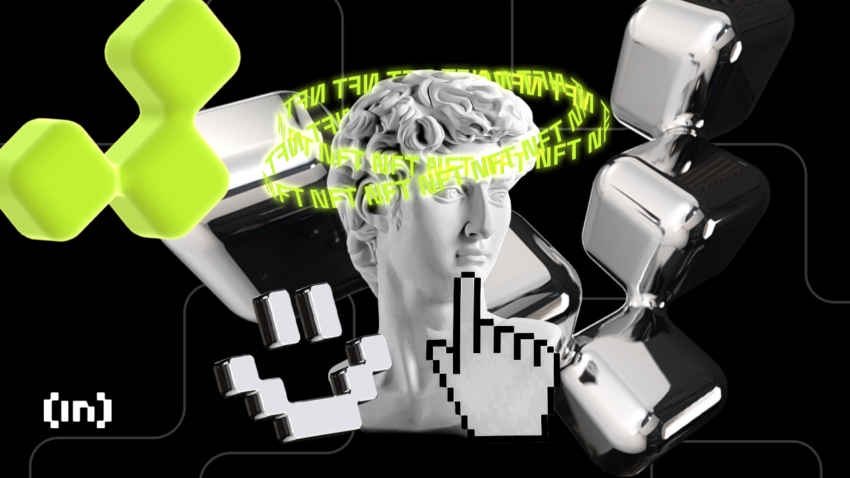A U.S. federal court judge has dismissed claims by Canadian firm Free Holdings Inc. that work by NFT artist Kevin McCoy was their property.
The judge said the plaintiff’s claims sought to exploit murky legal areas surrounding NFT ownership.
Quantum Ownership Transfer Not Provable, Rules Judge
According to Free Holdings, McCoy had no claim to the artwork he created because he failed to renew his ownership rights to the piece. This failure to act allowed Free Holdings to buy the registration and claim ownership.
Auction house Sotheby’s sold the artwork, dubbed “Quantum,” for about $1.5 million in 2021.

Free Holdings previously alleged that McCoy created a “record” of Quantum on the Namecoin blockchain in 2014. Namecoin is a blockchain forked from Bitcoin.

A Namecoin user can use a record like a domain name. It can contain certain metadata establishing an artist’s ownership of a digital item.
Free Holdings alleged that McCoy ceded ownership of the record by failing to “update” his “record” around Jan. 2015.
The judge dismissed the case. He ruled that Free Holdings had failed to prove ownership and was looking to cash in on unclear laws.
In other NFT ownership developments, PlayStation maker Sony filed a patent to allow the movement of in-game NFT assets between consoles and games.
Gamers can transfer assets acquired on PlayStation’s platform to Xbox, negating the need to re-earn them when migrating to a new platform.
NFT Ownership Requires Clear Rules, Say Experts
An NFT, or non-fungible token, is an immutable record of ownership of a digital or physical item on a blockchain. In the case of a digital asset, the NFT doesn’t contain the item whose ownership it records but the internet address where the file lives.
Weighing in on the McCoy ruling, intellectual property lawyer Nelson Rosario said, “It’s a window into challenges that might be coming for the NFT industry. An artist needs to understand how to make the rules of ownership clear so that a federal judge can recognize them in the event of a dispute.”
Rosario’s statements echo earlier findings by Cornell University that a creator does not automatically have control of an NFT artwork. Creators must enforce their copyrights rather than expect laws to protect their work automatically. These rights are what link the art to the asset.
“Unless an NFT explicitly gives owners copyright interests as opposed to just access to the artwork, owners should not assume that they have any rights to use the artwork or to stop others from using it,” the researchers assert.
The Ethereum ERC-721 standard is used to create NFTs on Ethereum. While ownership rights remain with the original creator indefinitely unless certain conditions are met, NFT marketplaces allow creators to charge a royalty fee for future sales.
Doodles, a popular NFT project, requires holders to obtain a commercial license if the revenue from the project exceeds $100,000.
For Be[In]Crypto’s latest Bitcoin (BTC) analysis, click here.
Disclaimer
In adherence to the Trust Project guidelines, BeInCrypto is committed to unbiased, transparent reporting. This news article aims to provide accurate, timely information. However, readers are advised to verify facts independently and consult with a professional before making any decisions based on this content. Please note that our Terms and Conditions, Privacy Policy, and Disclaimers have been updated.


